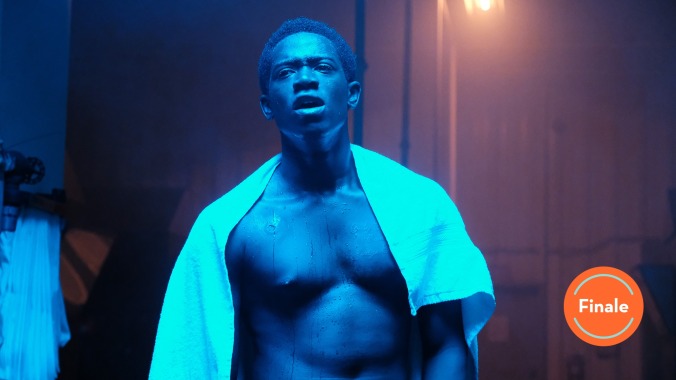Snowfall's season finale exposes an America made for the few

At the end of the ninth episode of this season, Franklin found himself in a position that he knew was coming: staring down the barrel of a gun, and then bleeding out on the floor after Mel shot him. He always knew that his actions would eventually have consequences, even as he walks around with all the swagger and confidence in the world. Getting shot was always a distinct reality of this business, and when Franklin murdered Andre, he knew he’d crossed into uncharted territory, forging a path much more dangerous than before.
Snowfall has spent two seasons charting the ebbs and flows of Franklin’s entry into the game, but it’s this third season that’s truly been dealing with the consequences. Franklin ended up in prison last season, suffering his own consequences, but it’s the collateral damage that weighs on him in this year’s 10 episodes.
What “Other Lives” posits is that perhaps things didn’t have to be this way. The finale passes over any story involving Gustavo (thankfully), and only rounds out Teddy’s season in the very last scene. Instead, the focus here is on an alternate timeline, an imagined scenario where Franklin accepts his offer to the college in the very white, affluent area, and doesn’t skip that to start selling weed. The Snowfall title card appears 34 minutes into the episode, and the previous 33 minutes is a stirring, pointed, emotional look at what Franklin’s life might have been.
The episode begins with a literal conversation about alternate lives, with Franklin sitting in on a class that discusses various potential realities in an infinitely expanding universe. “What would you be doing?” asks a classmate after class. “Probably back in Africa,” replies Franklin, “my people never chained and brought here in the first place.” The white, female classmate can only stare. “Took a fun game and kind of fucked it up, eh?” laughs Franklin. The interaction is a poignant one in terms of what Snowfall is doing. Franklin has always been aware of his people’s history, and he cares about his community; the trouble is, there’s no easy, expedient way to combat the history of oppression. In the real timeline, he sees the drug game as a way to profit off a system that typically keeps black men down. In this alternate timeline, he’s trying to get out of his community so that he can maybe one day come back and make it a better place.
 Keep scrolling for more great stories.
Keep scrolling for more great stories.
